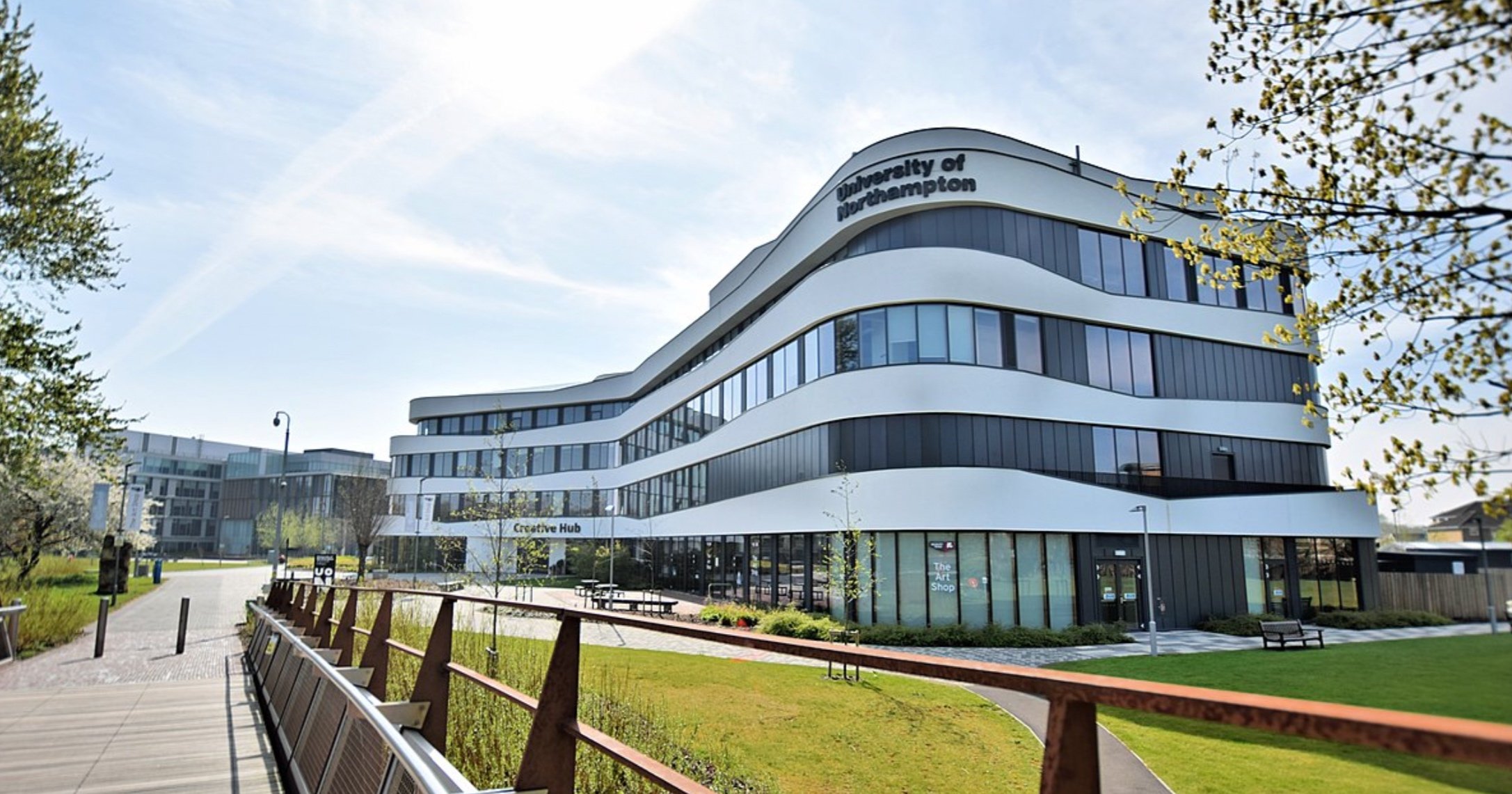
A UNIVERSITY’S SENSITIVE APPROACH TO CLIMATE LEADERSHIP
University of Northampton
Creating a sustainable campus for the 21st century
INSIGHT
The University of Northampton is advancing its fight against climate change by aiming for net-zero carbon emissions by 2030. This ambitious goal entails the reduction or removal of approximately 5,000 tonnes of carbon emissions annually within the next decade. Their strategy includes transitioning from fossil fuel heating to sustainable alternatives and enhancing the energy efficiency of older buildings. Key projects contributing to a reduction of approximately 2,700 tonnes of emissions per year encompass the 13MW Waterside Campus heat network, the Scholars Green and St Johns Hall student accommodations, and the Podiatry Clinic.
IDEA
Following appointment by lead consultant Gleeds, the Elevate team played a pivotal technical role in devising decarbonisation strategies for this portfolio.
We analysed each building's baseline energy usage, identifying potential savings through conservation and decarbonisation measures, aimed at reducing heat losses and scope 1 & 2 emissions. Comprehensive MEP surveys confirmed the feasibility of these strategies.
What will the project deliver?
This project marks the successful development of a robust and cost-effective carbon reduction strategy that delivers practical and realistic “act now” and “lifecycle replacement” pathways to support the university’s vision to reach net zero by 2030. All proposed clean heat generation methods have been designed to be compatible with the existing infrastructure, and the fabric efficiency improvements are tailored to minimise internal interventions that disrupt building operation. Notably, at the 30-year-old Scholars Green student accommodation, a 'fabric first' approach is projected to cut lifetime CO₂ emissions by 73% and extend the viability of this asset, thanks to reduced heat loss and solar thermal heat generation.
During the surveys, Elevate’s experienced engineer promptly identified multiple quick wins that addressed overheating and delivered immediate energy and emissions savings for the client.
Within the overall operational constraints, the team successfully identified substantial carbon emission reductions, vital for the University's commitment to achieving net-zero.
The headline from the final Heat Decarbonisation Plan, created by Gleeds, showcases unparalleled precision and feasibility, making it crucial for every organisation aiming for net-zero goals.
An extensive analysis and condition survey of each building was performed, focusing on operational profiles and existing infrastructure. This included:
Site Surveys: Comprehensive surveys of the four sites were conducted, including desktop reviews of meter data to establish baselines. Immediate energy savings were achieved through system adjustments identified during these surveys.
Baseline Establishment: The surveys and data analysis set the baseline for energy use at each site.
Collaborative Planning: With Gleeds, we identified practical Energy Conservation Measures (ECMs) for each site to optimise energy efficiency.
Holistic Approach: Following Salix guidelines, a "whole building" strategy was used to develop an effective schedule of works.
Efficacy Review: We evaluated proposed measures within the constraints of each site, ensuring alignment with funding requirements.
THE SOLUTION
IMPLEMENTATION
The collaboration between Gleeds PM and Elevate has produced client-focused solutions combining project management skills and engineering expertise, ensuring minimal disruption to university operations
This approach, particularly evident in the Scholars Green student accommodation project, aims to significantly reduce CO₂ emissions (by 73%) through a 'fabric first' strategy
This includes halving heat loss, integrating solar thermal heat generation, installing wall insulation, double-glazing, LED lighting (cutting energy use by 70%), and a rooftop solar array
Replacing gas boilers with a cascade heat pump system further enhances efficiency and sustainability

“We knew we needed a radical approach to meet our 2030 net zero carbon target, but one that was sensitive to our needs. As a university that ‘never sleeps’ – with students living and learning on-site for most of the year – there were multiple considerations to work with. The solutions identified will reduce thousands of tonnes of carbon dioxide each year, ensuring the University meets its mission to be a sustainable campus for the 21st century”.
– Victoria Blake, Environment and Sustainability Manager, University of Northampton
IMPACT
8.3 GWh annual energy conservation measures
Avoids 48,410 tonnes of lifetime CO₂e emissions
·£14 million in lifetime operational cost savings


